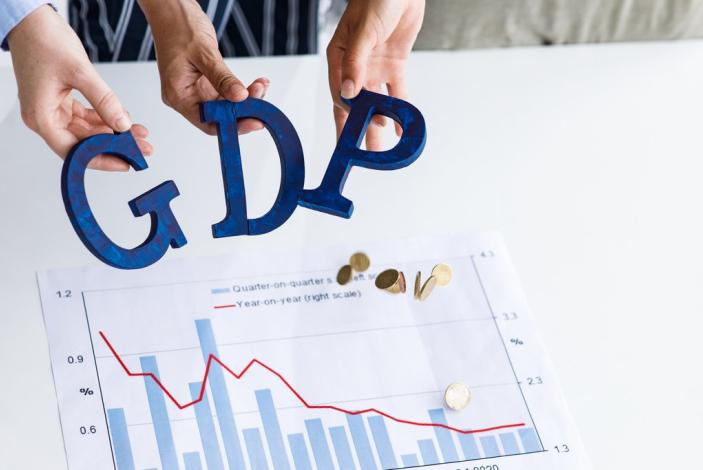
Is a recession looming? Look to accounting fraud for answers

By Matt Glendening and Ken Shaw
Will the U.S. economy go into a slowdown or recession? Elevated risk of accounting fraud serves as a useful signal, according to our recent research.
What is financial reporting and can it be manipulated?
Publicly traded companies in the United States must issue quarterly financial statements. These accounting reports allow players in the economy to make better, more informed decisions.
However, companies sometimes manipulate financial statements to hide their true state of business. For example, they might improperly accelerate the recognition of revenue and/or delay the recognition of expenses. Setting aside the innate ethics of corporate executives, financial statement manipulation typically results from two forces: strong incentives to report good news and inadequate monitoring over financial reporting. Importantly, both forces are most intense during economic booms, when there is a desire to keep the good times rolling. This can have potentially damaging economic consequences.
How does financial reporting manipulation relate to the macroeconomy?
The problem with companies providing false or misleading financial information is that economic decisions are then misinformed. At the micro level, this is costly to investors if they lose money by investing in fraudulent companies. Peer companies also bear consequences if they rely on competitor firms’ misleading financial reports when making investment, production and hiring decisions. This effect on peer companies can impact the economy at large.
When more and more companies misreport their financial performance, it can give their competitors a false impression of the economic environment because they are relying on overly optimistic information. In turn, these firms are slow to recognize that macroeconomic activity is declining. Eventually, however, misreporting firms become subject to more scrutiny, making it harder for them to continue to misrepresent their financial reports. This could be due to initial signs of economic headwinds, such as more firms beginning to report poor performance. It could also be due to a misreporting firm getting caught and having to restate its financial reports.
As misreporting firms come under more scrutiny, they are forced to report more realistic results. In turn, competitor firms realize they relied on information that was too optimistic and begin to curtail investment, production and employment. This decrease in economic activity can subsequently lead to a reduction in consumer spending. Together, these business and consumer effects can potentially lead to a slowdown in the economy and even a recession.
How do we measure financial statement misreporting?
There are two ways to measure whether a company manipulated its financial reporting. One is to wait until a misreporting firm is caught, but this can take several years and not all misreporting firms are caught. A better approach, which we use in our study, is to measure the likelihood of misreporting based on a model that incorporates known predictors of misreporting, in real time.
The measure we use is known as the M-Score, which is a firm-level measure of the likelihood of misreporting devised by our co-author, Professor Messod D. Beneish at Indiana University, in the late 1990s. It is based on eight predictors of misreporting, including whether earnings are supported by cash flows. The M-Score is widely used in capital markets and predicted the well-known Enron fraud; we construct a quarterly average M-Score across firms and use it to predict economic outcomes.
What do we find?
In our article forthcoming in The Accounting Review, “Aggregate financial misreporting and the predictability of U.S. recessions and GDP growth,” with co-authors Beneish and David Farber from Indiana University, we find that recessions and economic slowdowns are more likely when there is a high level of manipulation in companies’ financial statements (i.e., aggregate misreporting). Specifically, aggregate misreporting predicts recessions five to eight quarters ahead, even after controlling for known predictors of recessions, such as the yield curve spread and stock market returns. Our measure also predicts whether two-year-ahead GDP growth will be below trend.
So what?
High-quality accounting information is important for the functioning of the economy. While prior research has examined the consequences of accounting fraud at the individual firm level, no one has previously aggregated the data to come up with an economy-wide measure of financial misreporting. An important takeaway from our study is that accounting fraud also matters at the macro-level of the economy.
More practically, our findings could aid in recession prediction, a notoriously difficult task. We can see this with the current U.S. economy: there is a lot of disagreement about whether the U.S. will enter a recession during 2023. To the extent that regulators, companies and consumers want to prepare for an economic downturn, our findings are important.
What do we predict in the current environment?
We are observing an elevated level of aggregate misreporting and the probability of recession in 2023 is higher than it was for 2022. Although no model is a crystal ball, we predict the U.S. will not enter a recession in 2023, but has likely entered a two-year period of slower economic growth at the end of 2022.